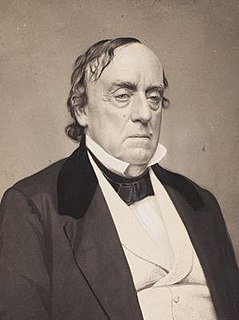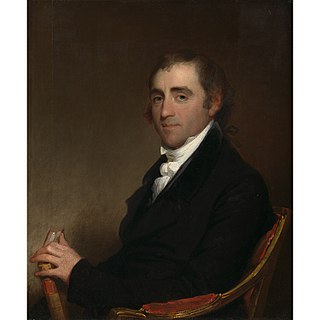A Quote by John Adams
Thus, experience has ever shown, that education, as well as religion, aristocracy, as well as democracy and monarchy, are, singly, totally inadequate to the business of restraining the passions of men, of preserving a steady government, and protecting the lives, liberties, and properties of the people . . . . Religion, superstition, oaths, education, laws, all give way before passions, interest, and power, which can be resisted only by passions, interest, and power.
Related Quotes
We have no government armed with power capable of contending with human passions unbridled by morality and religion. Avarice, ambition, revenge or gallantry would break the strongest cords of our Constitution as a whale goes through a net. Our Constitution is designed only for a moral and religious people. It is wholly inadequate for any other.
Men are admitted into heaven not because they have curbed and governed their passions or have no passions, but because they have cultivated their understandings. The treasures of heaven are not negations of passion, but realities of intellect, from which all the passions emanate uncurbed in their eternal glory.
Remember, democracy never lasts long. It soon wastes, exhausts, and murders itself. There never was a democracy yet that did not commit suicide. It is in vain to say that democracy is less vain, less proud, less selfish, less ambitious, or less avaricious than aristocracy or monarchy. It is not true, in fact, and nowhere appears in history. Those passions are the same in all men, under all forms of simple government, and when unchecked, produce the same effects of fraud, violence, and cruelty.
Chief among the forces affecting political folly is lust for power, named by Tacitus as "the most flagrant of all the passions." Because it can only be satisfied by power over others, government is its favorite field of exercise. Business offers a kind of power, but only to the very successful at the top, and without the dominion and titles and red carpets and motorcycle escorts of public office.
Well, it all began with Democracy. Before we had the vote all the power was in the hands of rich people. If you had money you could get health care, education, look after yourself when you were old, and what democracy did was to give the poor the vote and it moved power from the marketplace to the polling station, from the wallet...to the ballot.
It is difficult to say which is the greatest evil--to have too violent passions, or to be wholly devoid of them. Controlled with firmness, guided by discretion, and hallowed by the imagination, the passions are the vivifiers and quickeners of our being. Without passion there can be no energy of character. Indeed, the passions are like fire, useful in a thousand ways, and dangerous only in one--through their excess.
It is one thing to be delivered from bad thoughts, and another to be freed from the passions. Often people are delivered from thoughts, when they do not have before their eyes those things which produce passion. But the passions for them remain hidden in the soul, and when the things appear again the passions are revealed. Therefore it is necessary to guard the mind when these things appear, and to know toward which things you have a passion.
An immoderate fondness for dress, for pleasure, and for sway, are the passions of savages; the passions that occupy those uncivilized beings who have not yet extended the dominion of the mind, or even learned to think with the energy necessary to concatenate that abstract train of thought which produces principles.... that women from their education and the present state of civilized life, are in the same condition, cannotbe controverted.
The people as a body cannot deliberate. Nevertheless, they will feel an irresistible impulse to act, and their resolutions will be dictated to them by their demagogues... and the violent men, who are the most forward to gratify those passions, will be their favorites. What is called the government of the people is in fact too often the arbitrary power of such men. Here, then, we have the faithful portrait of democracy.
































